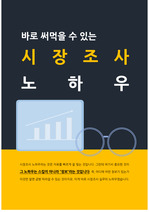THE INFLUENCE OF RELIGION ON PERCEPTIONS TOWARD THE REGULATION OF CONTROVERSIAL ADVERTISING
* 본 문서는 배포용으로 복사 및 편집이 불가합니다.
서지정보
ㆍ발행기관 : 글로벌지식마케팅경영학회(GFMC)
ㆍ수록지정보 : Global Marketing Conference
ㆍ저자명 : Zehua Wang, Sameer Deshpande, David S. Waller, B. Zafer Erdogan
ㆍ저자명 : Zehua Wang, Sameer Deshpande, David S. Waller, B. Zafer Erdogan
영어 초록
In the past, particular advertisements have offended people for being controversial products or executions, and, globally, religion plays a significant role in influencing attitudes toward controversial advertising. In light of advertising controversy and the impact of social values on government regulations, this study explores how religion (Christianity, Islam, Buddhism/Taoism, Hinduism, and non-believers) influences consumers’ perceptions of government regulations on controversial advertising. Controversial advertising is defined as “advertising that, by the type of product or execution, can elicit reactions of embarrassment, distaste, disgust, offence, or outrage from a segment of the population when presented” (Waller, 2006, p. 7). Typical controversial products include gender/sex related products, addictive products, social/political groups and health and care products (Fam, Waller, & Erdogan, 2004). Controversial executions usually refer to antisocial behaviour, indecency, fear, racism, and sexuality (Wilson & West, 1981). Several examples in recent decades show that marketing communications which involve controversial products or executions can cause a large-scale boycott of a brand. Studies have found that religion becomes a crucial indicator in influencing consumers’ perceptions of marketing activities and shopping behaviours (Al-Hyari et al., 2012). When the advertised content violates the religious beliefs of the audiences, brand damage can follow. While controversial advertising offends consumers, its insufficient regulation hurts too (Christy, 2006); thus leading to calls for more attention from government regulatory bodies (Boddewyn, 1991). According to previous studies, “many general spiritual principles and actual rituals in religion are related to ethical positions” (p. 533). Consumers’ religious beliefs could affect how they expect regulatory bodies to behave as social agents (Cornwell et al., 2005). Therefore, this study extends the literature by examining how consumers affiliated with different religions evaluate the current government regulation of the advertising of controversial products and executions, and whether they perceive that the regulations have effectively restricted the advertising offense based on their religious beliefs. Based on research data collected from 1,402 university students in 11 countries from across North America, Europe, Asia, and Australia (namely, (Canada, Italy, Australia, Germany, England, China, India, Turkey, Mexico, Korea, and Malaysia), the findings confirm the existing literature that different religions are identified as having different levels of tolerance toward the advertising of controversial goods and executions (Fam, Waller, & Erdogan, 2004; Morphitou & Gibbs, 2000). Also, the restrictions required by some religious groups are inadequately addressed by regulatory bodies. See Tables 1 and 2. Islamic followers are more easily offended by controversial advertising. At the same time, they perceive relatively weak government regulations on controversial advertising. This is particularly true for the advertising of addictive products, personal themes, and risky/avoidable executions. Although in some Muslim countries (e.g., Malaysia) where numerous government regulations are already instituted to protect the Islamic values and their cultural identity (Waller & Fam, 2000), the force of the regulations is still perceived as weak, thus demanding more restrictions. Buddhists/Taoists and non-believers who are moderately offended by the controversial advertisements, more frequently indicate that the government restrictions on advertising are stronger than those indicated by Muslims, Hindus, and Christians. Perceptions of Buddhists are likely influenced by their philosophical teachings, which includes teachings of “Wisdom (right view, right intention), Ethical conduct (right speech, right action, right livelihood), and Concentration (right effort, right mindfulness and right concentration)” (“Buddhism,” 2013). Although Non-believers do not officially commit to a religion, the 73.37% of non-believers in this study reside in China and South Korea, both societies that practice Confucian cultures (Gao & Kim, 2009). Confucianism is concerned with “morality, propriety, modesty, social harmony and human relationships” (Ching, 1997; Wilhelm, 1931 in Gao & Kim, 2009). As such, Buddhists/Taoists and non-believers perceive that the regulations strongly protect their cultural values and the harmony of the society from inappropriate commercials, but are less restrictive of freedom of choice, free speech and marketers’ creativity. Hindus are found to be less offended by the advertisements of the majority of controversial product and execution groups; at the same time they believe that the advertisements are less regulated compared to other religions. However, their negative attitudes toward the advertising of addictive products call for special attention of marketers and regulatory bodies. Compared to the other four religious groups, Hindus indicate that the regulations are weakly planned in restricting the advertising of addictive products and the advertising offense still occurs. This finding confirms Hindus’ desire to prohibit such advertising in media in order to protect health and well-being of their young population (Shastri, 2012) and control overall crime in the Hindu society (Schneider, 2013). Christians perceive the regulatory restrictiveness as being significantly lower than Buddhists/Taoists and non-believers, but not different from Muslims and Hindus. Christians indicate an overall lower extent of offensiveness on all eight groups of products and executions than the other four religions, and they also report the regulations to be acceptable. These findings validate Morphitou and Gibbs’s (2008) argument that Christians have more tolerance toward self-interest and acceptance of the diversity in marketing communications. Christians’ opinions on the restrictive effects of the regulations on hindering free speech, freedom of choice, and creativity of marketing communications are salient. This finding would remind the regulatory bodies to be cautious about not being overly restrictive in Christian-dominated countries when planning regulations. The study findings have practical value for advertisers and policy makers. The advertising practitioners need to be aware of elements in their advertising that conflict with consumers’ religious beliefs, especially when operating in international markets, and prevent advertising offense. Direct marketing strategy is strongly recommended when promoting controversial products in a highly sensitive mass media environment, especially for marketing in pluralistic societies which have multiple religions. Advertisers need to exercise special caution when promoting gender/sex-related products and social/political groups in Muslim-dominated markets (Michell & Al-Mossawi, 1999; Fam, Waller, & Erdogan, 2004; De Run et al., 2010). Advertising of those two product groups to non-believers who conform to the ethical codes of Confucianism can also be offensive (Gao & Kim, 2009). Marketers should be aware that the advertising of alcohol and cigarettes is highly offensive to Hindus and Muslims. Their promotion in mass media may evoke negative responses. Additionally, using controversial executions in advertising should be avoided, especially when targeting Muslims and Confucian consumers. These findings may also help advertising regulation planners (self-regulating advertising bodies and policy makers) to gain understanding about how different religions view the current regulations of controversial advertising. When targeting Buddhists/Taoists and non-believers, advertising regulators should consider keeping the current level of restrictions of controversial advertising. We recommend similar approach when targeting Hindus except for imposing more regulations in relation to advertising of addictive products. In Islamic societies, more restrictions or more awareness of what are the current restrictions may be necessary, in order to comply with Muslims’ sensitivities, while an easing of the restrictions on the advertising in Christian-dominated markets would be desired.참고 자료
없음태그
"Global Marketing Conference"의 다른 논문
 THE ROLES OF GREEN PACKAGING IN UGLY FOOD PURCHASE INTE..22페이지
THE ROLES OF GREEN PACKAGING IN UGLY FOOD PURCHASE INTE..22페이지 THE IMPACT OF INDUCED AWE ON ETHICAL TOURIST BEHAVIORS5페이지
THE IMPACT OF INDUCED AWE ON ETHICAL TOURIST BEHAVIORS5페이지 A BIBLIOMETRIC ANALYSIS OF SPIRITUAL TOURISM RESEARCH15페이지
A BIBLIOMETRIC ANALYSIS OF SPIRITUAL TOURISM RESEARCH15페이지 SOCIAL NETWORK ANALYSIS AND RESPONSE TIME TESTING: CONS..11페이지
SOCIAL NETWORK ANALYSIS AND RESPONSE TIME TESTING: CONS..11페이지 THE EFFECTS OF PARA-SOCIAL INTERACTION ON ONLINE CELEBR..3페이지
THE EFFECTS OF PARA-SOCIAL INTERACTION ON ONLINE CELEBR..3페이지 THE INFLUENCE OF OPINION LEADERS ON DAILY DEALS USER’S ..3페이지
THE INFLUENCE OF OPINION LEADERS ON DAILY DEALS USER’S ..3페이지 HOW IMMERSIVE RETAILING AFFECTS CONSUMERS’ URGE TO BUY:..6페이지
HOW IMMERSIVE RETAILING AFFECTS CONSUMERS’ URGE TO BUY:..6페이지 KEY TO SUPERSTARDOM IN A GLOBALISED MARKET: THE ROLE OF..6페이지
KEY TO SUPERSTARDOM IN A GLOBALISED MARKET: THE ROLE OF..6페이지 A POST-PANDEMIC LOOK AT TOURISTS’ PERCEIVED COOLNESS OF..4페이지
A POST-PANDEMIC LOOK AT TOURISTS’ PERCEIVED COOLNESS OF..4페이지 EXTRACTING OFFLINE RETAIL SHOPPING PATTERNS: OLLABORATI..5페이지
EXTRACTING OFFLINE RETAIL SHOPPING PATTERNS: OLLABORATI..5페이지


















